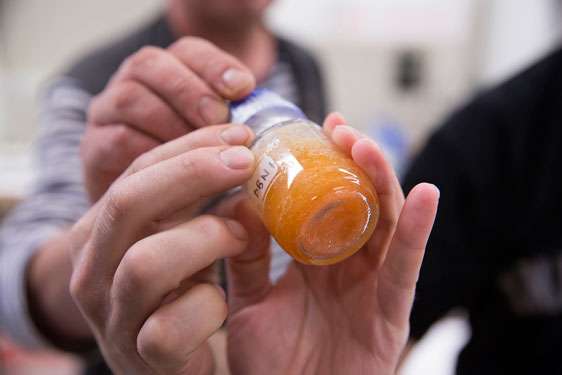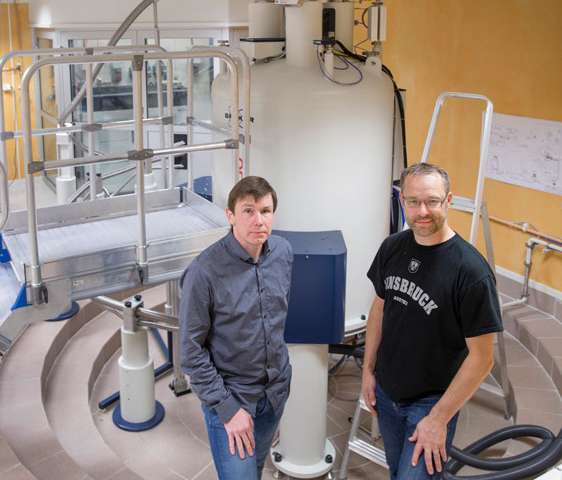Ionic liquids to extract molecules from wood

Ionic liquid with unique properties.
ionic liquids are salts in fluid form at room temperature – compared with regular cooking salt, sodium chloride, which melts at 800 degrees Celsius. This characteristic means that ionic liquids have unique properties making them important solvents for "green" and sustainable chemistry.
In a previous study, the professor in chemistry Jyri-Pekka Mikkolas' research group has discovered that hemicellulose, cellulose and lignin can be selectively separated and dissolved using a new type of so-called switchable ionic liquid. Recently, a team of Magnus Wolf-Watz and Jyri-Pekka Mikkolas research teams have discovered that enzymes can function in this particular ionic liquid. This is far from evident since enzymes have evolved into functioning in water solutions.
"Our discovery is a scientific breakthrough! This is the launch that enables us to extract small key molecules directly from wood. There are many applications not in the least in the production of ethanol as fuel but also a number of other things," says Magnus Wolf-Watz, associate professor at the Department of Chemistry.
The main experimental technology used is NMR, nuclear magnetic resonance spectroscopy. A crucial component in the work has been the development of a completely new method to determine the enzymatic activity. The assay procedure is based on real time measurements of the chemical reaction using 31P NMR spectroscopy. The NMR infrastructure at Umeå University is at international top class and are funded by the Kempe and Wallenberg Foundations.

Per Rogne and Magnus Wolf-Watz in front of the NMR infrastructure.
"This development will be of major importance to the measurement of enzymatic catalysis in complex solutions and preparations, and the method is already being used in new projects," says Jyri-Pekka Mikkola, professor at the Department of Chemistry.
The research team is represented by researchers from both biochemistry and technical chemistry. Jyri-Pekka Mikkolas' research team is a part of Bio4Energy's research environment that aims to take Swedish biorefinery research to whole new levels. Jyri-Pekka Mikkolas' research team also belongs to the network Wallenberg Wood Science Center.
Read more at: http://phys.org/news/2015-10-ionic-liquids-molecules-wood.html#jCp
